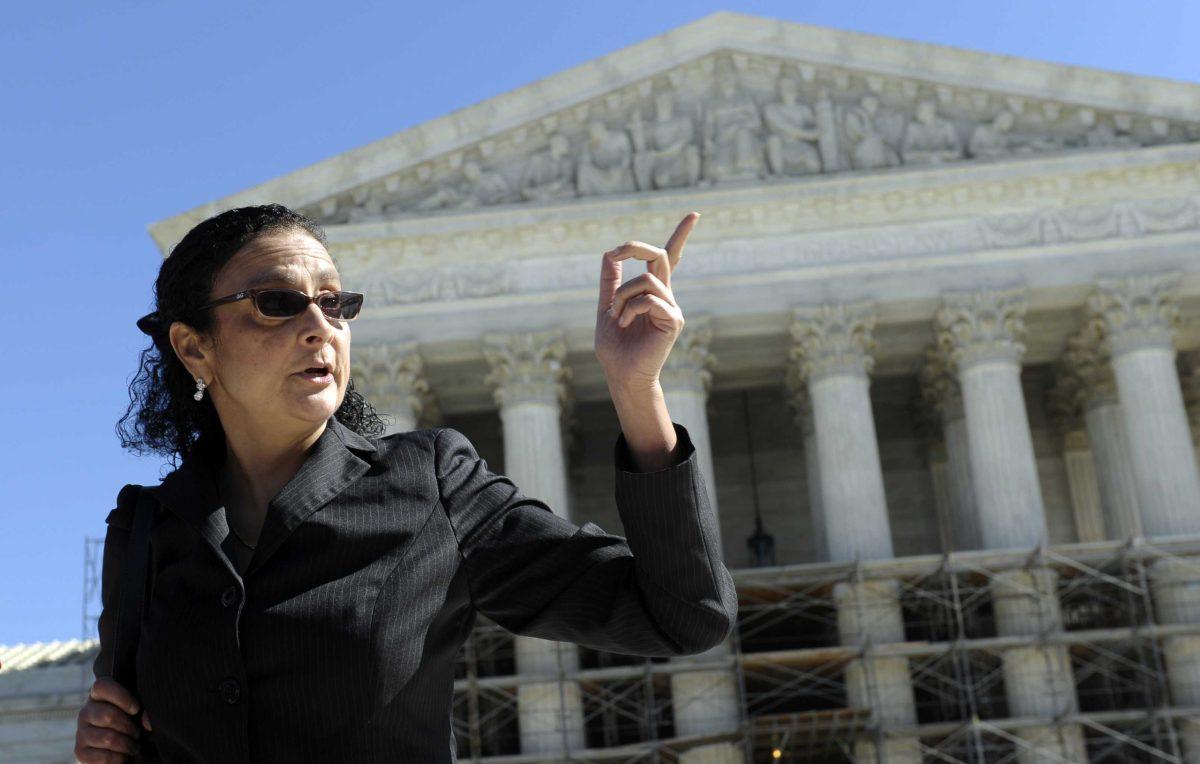With the ongoing banter about the government shutdown and debt default, a news story about race conflict would almost seem a relief.
Lucky us, because this week the Supreme Court took up Schuette v. Coalition to Defend Affirmative Action.
The case challenges a motion passed by Michigan in 2006, which amended the constitution to prohibit its universities from discriminating against prospective students based on race.
You heard that right. The Coalition to Defend Affirmative Action, Integration and Immigrant Rights and Fight for Equality By Any Means Necessary— that’s actually its name — is challenging a state’s right to ban racial discrimination.
In doing this, they oppose an amendment popularly added to a state’s constitution. Even more absurd, they claim that it stands as an impeachment of equal protection.
Remember: the amendment bans any type of racial discrimination during admissions. How could a state’s population be more equally protected?
The Coalition — we’ll call it that for short — and their lawyers argue that the amendment eliminates affirmative action, and therefore encroaches on the rights of minorities.
But it’s the 21st century. I thought we were all equal by now.
Apparently not, according to lawyer Shanta Driver, who said Tuesday that the amendment fails “to protect minority rights against the white majority.”
Justice Antonin Scalia replied tersely that the 14th amendment protects all Americans, not just minorities, and he has a point.
Fifty years ago it was a beneficial program that ensured minority involvement in higher education. But there are no longer students on campus who chant, “two-four-six-eight we don’t wanna integrate.”
That was the environment from whence affirmative action came and if that environment ceases to exist, so should the program.
In both 1969 and 1982, the Supreme Court struck down measures that disfavored minorities, according to The New York Times.
If we are going to say that our country is equal, it is time to put away affirmative action and let merit once again decide who is successful.
The voters of Michigan voted 58 percent in favor of the amendment. In doing so, they voted to outlaw an antiquated system that undermined basic American principles of equality and competition.
How can we as a country tell a state’s voters that they cannot pass an amendment that bans discrimination from state universities?
At LSU, we take pride in our rich diversity. But we shouldn’t achieve this by forcing some out to let others in. Our diversity will survive without affirmative action, so let’s allow it to.
Of course, there are always those like Driver who argue that minorities are not given a fare shake in the system.
However, Michigan Solicitor General John Bursch countered this argument by pointing to Texas and California, two states that eliminated affirmative action. He said that in California minority students have higher GPAs and a 20-25 percent higher graduation rate than they did under affirmative action.
This country prides itself in its capitalist system in which anyone who is capable will rise to the top no matter his or her origin. If we are going to accept this, we need to remove this crutch and let the system function, as it should.
If someone is meant to attend college, then let them show it through their test scores and grades, not by the color of their skin.
We have indeed been ushered into a new era of equality and tolerance this century, so we should tear down the vestiges of a system in which our country was plagued with prejudice.
It would be wrong for the Supreme Court to take away Michigan’s right to eliminate discrimination. Not only that, Louisiana should take heed and pass a similar amendment so that we can have true equality among racial groups.
The sixties are over, so let’s start acting like it.
Opinion: It’s time to end affirmative action, diversity will survive
By Eli Haddow
October 17, 2013
Shanta Driver arrives at the Supreme Court in Washington, Tuesday, Oct. 15, 2013. Driver is the National Chair of the Coalition to Defend Affirmative Action, Integration, and Immigrant Rights and Fight for Equality by Any Means Necessary. Driver argued her side of an affirmative action case before the Supreme Court, Tuesday after affirmative action opponents persuaded Michigan voters to outlaw any consideration of race after the Supreme Court ruled a decade ago that race could be a factor in college admissions. (AP Photo/Susan Walsh)





